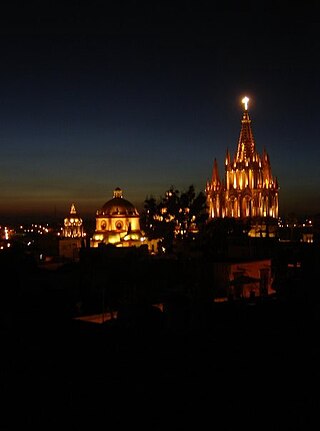Related Research Articles

A film festival is an organized, extended presentation of films in one or more cinemas or screening venues, usually in a single city or region. Increasingly, film festivals show some films outdoors. Films may be of recent date and depending upon the festival's focus, can include International and Domestic releases. Some film festivals focus on a specific filmmaker, genre of film, or subject matter. Several film festivals focus solely on presenting short films of a defined maximum length. Film festivals are typically annual events. Some film historians, including Jerry Beck, do not consider film festivals as official releases of the film.
A film school is an educational institution dedicated to teaching aspects of filmmaking, including such subjects as film production, film theory, digital media production, and screenwriting. Film history courses and hands-on technical training are usually incorporated into most film school curricula. Technical training may include instruction in the use and operation of cameras, lighting equipment, film or video editing equipment and software, and other relevant equipment. Film schools may also include courses and training in such subjects as television production, broadcasting, audio engineering, and animation.
The Austin Film Society (AFS) is a non-profit film society based in Austin, Texas. Founded in 1985 to exhibit independent, experimental, foreign and various other non-mainstream art films, the film society has grown from just film exhibition to fostering independent filmmaking in Texas and has served as a cornerstone in building the film industry in Austin. The film society also owns and maintains Austin Studios, hosts the annual Texas Film Awards gala, and oversees the Austin Film Society grant program. The film society was founded by film director Richard Linklater, who currently serves on the board as artistic director. Other notable members on the board and advisory board include Tim McCanlies, Robert Rodriguez, Charles Burnett, Guillermo del Toro, Jonathan Demme, Mike Judge, John Sayles, Steven Soderbergh, Paul Stekler and Quentin Tarantino.

The Canadian Film Institute (CFI) (French: Institut canadien du film (ICF)) Canadian Film Institute involves Canada in the film production, study, appreciation process of film/moving images for cultural and educational purposes. The Canadian Film Institute organizes ongoing public film programming and artist talks, provides educational enhancements on its websites, distributes a small collection of films, and is involved in the publication of books and monographs on various aspects of Canadian cinema. CFI screenings and events are held in Ottawa Ontario, mainly at The Auditorium at 395 Wellington St. (formerly operated by Library and Archives Canada).

Visual Communications –– is a community-based non-profit media arts organization based in Los Angeles. It was founded in 1970 by independent filmmakers Robert Nakamura, Alan Ohashi, Eddie Wong, and Duane Kubo, who were students of EthnoCommunications, an alternative film school at University of California, Los Angeles. The mission of VC is to "promote intercultural understanding through the creation, presentation, preservation and support of media works by and about Asian Pacific Americans."
The Geneva International Film Festival (GIFF) (French: Festival international du film de Genève) is an annual film festival founded in 1995. The festival, previously called the Geneva International Film Festival Tous Ecrans, was renamed in July 2017 as the Geneva International Film Festival (GIFF). Every year for over ten days, the festival offers a series of experiences focused on image, sound, and new forms of narration. Offerings include screenings, interactive installations, VR workshops, conferences, and live performances.

The culture of San Antonio reflects the history and culture of one of the state's oldest and largest cities straddling the regional and cultural divide between South and Central Texas. Historically, San Antonio culture comes from a blend of Central Texas and South Texas (Southwestern) culture. Founded as a Spanish outpost and the first civil settlement in Texas, San Antonio is heavily influenced by Mexican American culture due to Texas formerly being part of Mexico and, previously, the Spanish Empire. The city also has significant German, Anglo, and African American cultural influences. San Antonio offers a host of cultural institutions, events, restaurants and nightlife in South Texas for both residents and visitors alike.

The Guanajuato International Film Festival or GIFF is an annual international film festival, held since 1998. It is held during the final week of July in San Miguel de Allende and Guanajuato City, Mexico. GIFF was formerly known as Expresión en Corto International Film Festival.

Steven Thomas Fischer is an American film director, producer, and cartoonist. His work has been honored by the Directors Guild of America, The New York Festivals, the CINE Golden Eagle Awards, and Marquis Who's Who in Entertainment.

Cristina Kotz Cornejo is an Argentine-American director and screenwriter who divides her time between Boston, Mexico City, and Buenos Aires. She is a descendant of the Huarpe people of the Cuyo region of Argentina and was educated in the US and Argentina.
Chicano/Latino Film Forum was an association of Latino filmmakers, students, academics, and audience members that was active in the Austin, Texas area from 1993 to 1999.

Cines del Sur is an international film festival in Granada, Spain, that focuses on emerging cinemas belonging to what is known as the geo-political south. Film productions which often have limited distribution and screening opportunities find in Cines del Sur a platform to help them gain recognition. Beyond its appearance as a showcase of films, Cines del Sur is also a place for encounters, discussion and sharing among professionals, film lovers and people interested in broadening their social, cultural, economic and political perspective of the globalized world. The festival encourages reflection and debate on the enormous value of diversity and cultural exchange.

The Center for Asian American Media (CAAM) was founded in 1980. The San Francisco–based organization, formerly known as the National Asian American Telecommunications Association (NAATA), has grown into the largest organization dedicated to the advancement of Asian Americans in independent media, specifically the areas of television and filmmaking.

Sundance Institute is a non-profit organization founded by Robert Redford committed to the growth of independent artists. The institute is driven by its programs that discover and support independent filmmakers, theatre artists and composers from all over the world. At the core of the programs is the goal to introduce audiences to the artists' new work, aided by the institute's labs, granting and mentorship programs that take place throughout the year in the United States and internationally.

Ciné-Asie is a Montreal-based, non-profit film and media company that seeks to explore the unique identity of Asian-Canadian media arts and artists. Its mission is to develop and create cinema that empowers people who are marginalized by mass media and to introduce the Asian cult and genre films to the wider public. Ciné-Asie is involved in many different projects including film contests, exhibitions and film screenings at the Cinémathèque québécoise.

The Asian American International Film Festival (AAIFF) is the first and longest-running film festival to showcase the works of emerging and experienced Asian and Asian American filmmakers and media artists in the US.

The Department of Radio–Television–Film at the University of Texas at Austin located in Austin, Texas, is one of the five departments comprising the Moody College of Communication. The department was founded in 1965 and has become one of the nation's premiere film schools, consistently ranking in the top 5 for graduate programs and the top 10 for undergraduate studies. The department has a very selective admissions policy, accepting fewer than 25% of applicants in its undergraduate program, and fewer than 15% of applicants in its graduate programs.

The Cinematheque, founded in 1972, is a Canadian charity and non-profit film institute, media education centre, and film exhibitor based in Vancouver, British Columbia.
The Festival of African Cinema (FCAT), also known as Tarifa-Tangier African Film Festival, originally African Film Showcase of Tarifa (2004–2006) and formerly African Film Festival of Tarifa (2007–2014), the African Film Festival of Cordoba (2012–2015), is an annual festival devoted to African cinema held in the Spanish city of Tarifa and the Moroccan city of Tangier.

The Munich International Film Festival is the largest summer film festival in Germany and second only in size and importance to the Berlinale. It has been held annually since 1983 and takes place in late June or early July. The latest festival was held from June 23 to July 2, 2022. It presents feature films and feature-length documentaries. The festival is also proud of the role it plays in discovering talented and innovative young filmmakers. With the exception of retrospectives, tributes and homages, all of the films screened are German premieres and many are European and world premieres. There are a dozen competitions with prizes worth over €250,000 which are donated by the festival's major sponsors and partners.
References
- ↑ 14th Cine Las Americas International Film Festival Call for Entries, Persistence of Vision, Journal of the Austin Film Society, AFS Communications Dept., 2010-10-06.
- ↑ Cine Las Americas Film Festival [ permanent dead link ], Alamo Drafthouse Cinema, 2011. Retrieved 2011-04-10.
- ↑ About Us, History Archived 2009-06-21 at the Wayback Machine , Cine Las Americas. Retrieved 2011-04-11. The Organization and History sections of this article are sourced from Cine Las Americas with their permission Archived 2011-07-25 at the Wayback Machine .